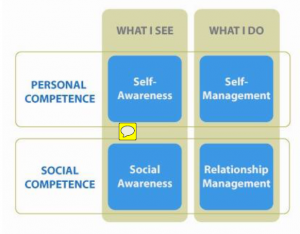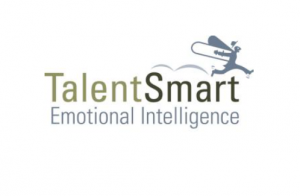Mastering Emotional Intelligence Level 1
“The daily challenge of dealing effectively with our emotions is critical because our brains are hard-wired to give emotions the upper hand.” – Dr Travis Bradberry and Jean Graves, Emotional Intelligence 2.0
 Emotional Intelligence Matters
Emotional Intelligence Matters
Whether you are aware of them or not, emotions are intertwined in everything you think, do, and say each day on the job, in your career and through your life.
Emotional Intelligence (EQ) is how you handle yourself and others on the job. Your EQ consists of four core skills:
| SELF-AWARENESS | Awareness of your own emotions and tendencies and understanding your strenghts and personal style opens doors for you to…. |
| SELF-MANAGEMENT | Manage your reactions efficiently by making better decisions and responding to challenges and opportunities productively. |
| SOCIAL-AWARENES | Awerness of the emotions of other people including unspoken cues and the mood in the room gives you the information you need to… |
| RELATIONSHIP-MANAGEMENT | Manage relationship by builing strenghtening and depending your conections with the people in your social network. |
People who develop their EQ communicate effectively, handles stress well, make good decisions, handle conflict productively, are better team players, respond flexibly to change, influence others more, and provide top-notch performance.
The program has one purpose…
…to increase your EQ
TalentsSmart’s Discovering Emotional Intelligence will take you far beyond knowing what EQ is and how you score your first EQ test. You’ll discover the 66 strategies you can use right away to take your EQ to new hights. Begin your EQ journey toward handling yourself in times of stres and dealing with others skillfully. Reap all the rewards that being emotionally intelligent will bring you.

